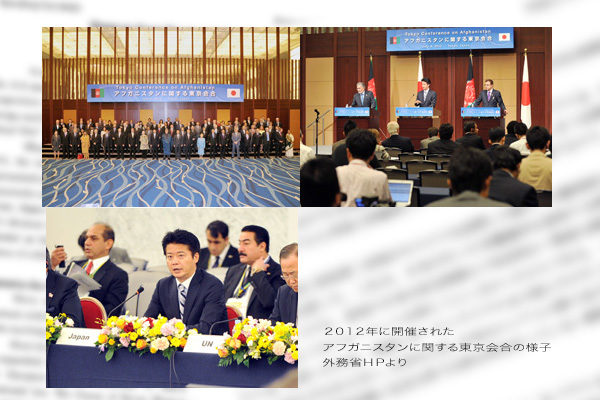The Islamic fundamentalist Taliban group has taken control of Afghanistan for the first time in two decades. The result represents a defeat for Japan as well that has poured as much as 700 billion yen (about $7 billion) into Afghanistan to support its self-help in tandem with the United States.
On September 11, 2001, I was living in downtown New York. I had a closeup view of the twin-tower World Trade Center building collapsing after the second aircraft crashed into the building. The scene was branded in my memory. Some 3,000 victims in the terrorist attacks included 24 Japanese. New Yorkers, who were used to criticizing the Republican Party harshly, enthusiastically supported then Republican President George W. Bush’s decision to attack Afghanistan.
Democracy has failed to be rooted in Afghanistan
In the past two decades since then, the U.S. has promoted the democratization of Afghanistan in cooperation with Japan and Europe to prevent the country from becoming a hotbed for terrorists. In 2002 and 2012, Japan hosted meetings of countries supporting Afghanistan. At the 2012 meeting, participants issued a Tokyo declaration that reaffirmed support for Afghanistan’s development efforts toward its self-help and positioned the 10 years between 2015 and 2024 as a period for Afghan reform under the pledge not to abandon the country.
The declaration set out goals and benchmarks in five areas such as representative democracy and fair elections, the rule of law and human rights, and governance. But corruptions and violence have led Afghanistan to fall short of realizing the goals, inviting the once-expelled Taliban to come back to power.
Based on non-U.S. information, the Japanese government had concluded that Taliban militias’ march was faster than expected and could lead to their bloodless takeover of Kabul. At a bilateral senior officials meeting in early August, the Japanese side raised the Afghan situation, but the U.S. side reportedly made a lukewarm response.
The U.S. State Department reportedly had had a sense of danger regarding Afghanistan, but the sense might have failed to reach President Joe Biden or might have been ignored by the president. Anyway, the While House had undoubtedly failed to view the Afghan situation as serious.
U.S. reluctance to engage with world affairs
We should not lump Japan in with Afghanistan, as noted by President Biden who is exposed to criticism over his handling of the Afghan situation. U.S. forces will never withdraw from Japan immediately. But we must recognize that the U.S. seems generally reluctant to engage with world affairs.
In the U.S., Afghan rule was compared with Japan rule by the Allied General Headquarters after World War II. The GHQ rule of Japan might have been successful. But Japan cannot be viewed as militarily self-reliant as of now. Japan has unknowingly come to depend on U.S. forces’ offensive role. It is good that Japan will not launch a war of aggressions. However, Japan cannot defend itself with its “exclusively defensive posture.”
Japan should become capable of defending itself even without U.S. help in the event of an armed conflict over Senkaku Islands or on the Korean Peninsula. To this end, Japan should possess medium-range ballistic missiles to be able to attack enemy bases.
Takashi Arimoto is publisher of Monthly Magazine SEIRON at the Sankei Shimbun newspaper.


